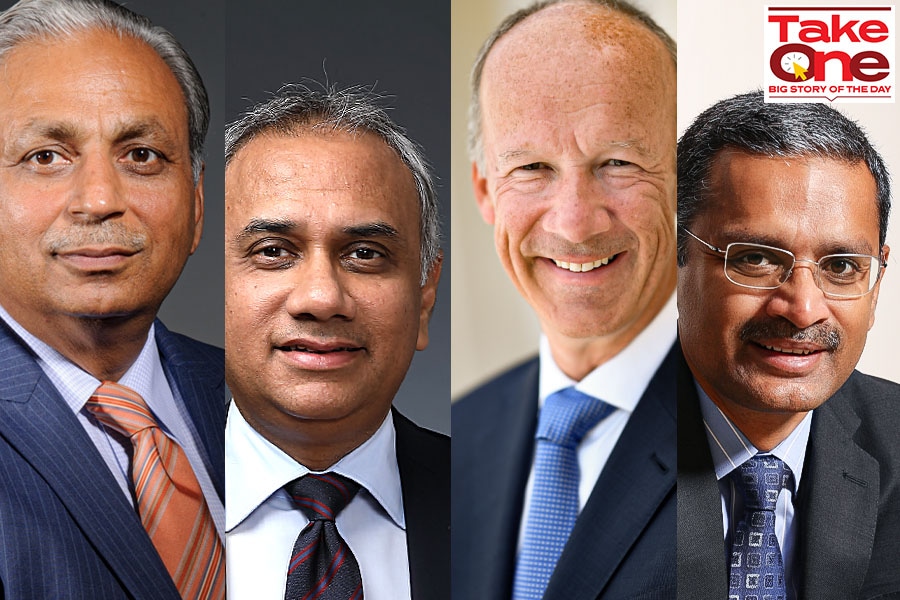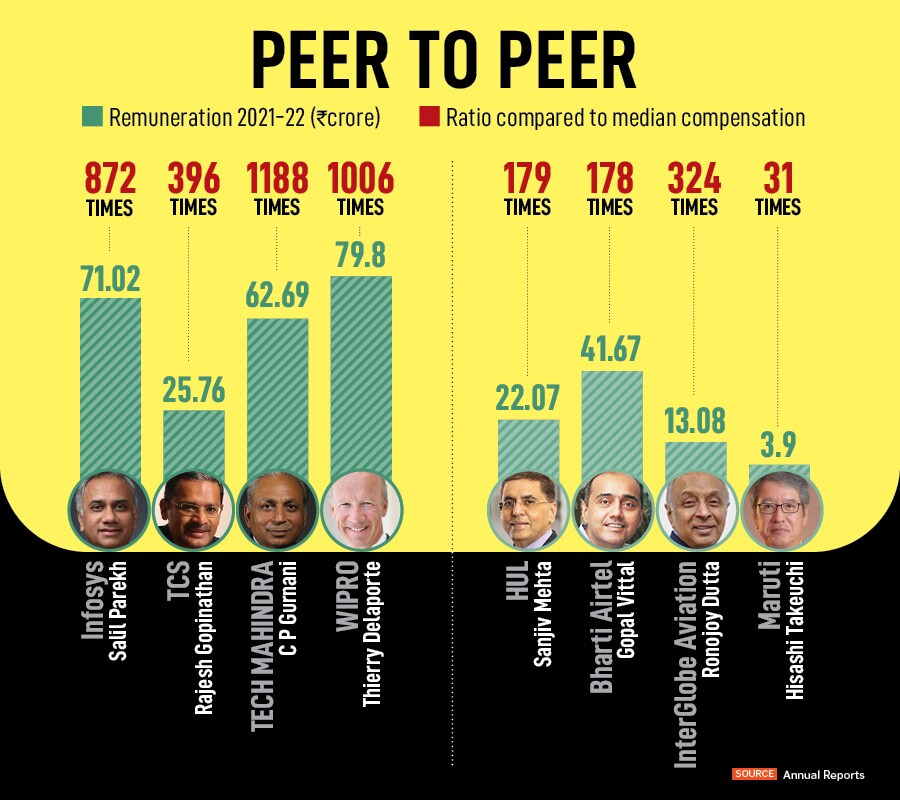
Big 4 Indian IT CEOs' salary 200-1,000 times more than average employee compensation
With stock options and global benchmarks, the compensation of CEOs of listed Indian IT service firms is far higher than that of their counterparts in other industries
 L-R: CP Gurnani of Tech Mahindra, Salil Parekh of Infosys, Thierry Delaporte of Wipro, and Rajesh Gopinathan of TCS
L-R: CP Gurnani of Tech Mahindra, Salil Parekh of Infosys, Thierry Delaporte of Wipro, and Rajesh Gopinathan of TCS
Over the last five years CEOs of Indian IT firms have seen a large bump in their compensation. This large increase hasn’t been the norm across sectors an analysis by Forbes India shows.
The reason for this jump has been two-fold. First is the liberal grant of stock options, which are often in the form of restricted stock units (RSUs). These usually have a vesting price of Rs1-5 and are certain to vest after a fixed time period. Salil Parekh of Infosys received a part of his compensation in the form of RSUs.
In other cases liberal stock grants as in the case of CP Gurnani of Tech Mahindra have meant they’ve managed to cash out at a hefty premium on account of the increase in the company’s market cap. Only Rajesh Gopinathan of TCS did not receive stock options as TCS does not have an ESOP plan. But he was compensated with commission that is given out based on performance parameters being met.
The net result is that in case of four large Indian IT services forms–Infosys, TCS, Wipro and Tech Mahindra–CEO compensation (with stock options included) is between 200-1,000 times the average employee compensation that ranged from Rs500,000 to Rs800,000 in 2021-22 (see graphic).









